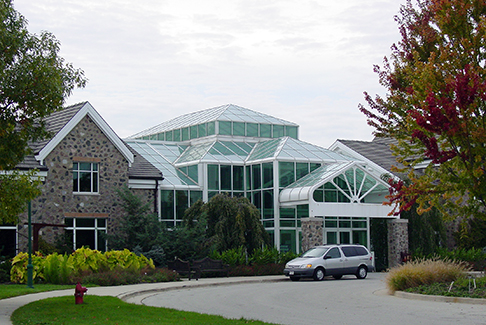Master Gardener classes have been going very well. Our group has about 75 people and they come with a lot of practical gardening knowledge. Most of us love growing things and we just want to know more. It is a great way to meet others with similar interests and share tips while we learn from professional horticulturists. We have a lot to learn and the classes are partly lecture with powerpoint slides and partly hands-on using plant samples.
Class Info Synopsis
First Week: In the first Master Gardening class, we talked about botany and what makes the plant kingdom special. Basically plants are the organisms that convert the sun’s energy into food, beginning the food chain upon which all our lives depend. We talked about plant anatomy, physiology and how the botanical nomenclature is listed on all those plant tags that come with our purchases at the garden center. We learned about how a plant actually grows touching on meristems (growth points in both stems and roots), adventitous growth and secondary growth. Also included was a segment on photosynthesis and plant respiration.
Second week: This was a continuation of botany, discussing propagation of plants starting with seeds that were monocot (corn is an example) and others who were dicot (beans are one kind). We also covered cloning and asexual reproduction of plants. We learned the difference between bulbs (tulips & onions), corms (gladiolas), tubers (potatoes) and rhizomes (irises).
We also learned about environmental interactions that influence our plants such as light, air quality, water and temperature. Lastly our class moved on to plant growth regulators like Auxin, Cytokinin, Gibberillin and Ethylene.
Third week: This week dealt with soil and how important it is to the health of our gardens and indeed the people who eat the produce we grow. Soil is vital to all life on earth because it supports the growth of plants who feed us all. An interesting bit of trivia we learned is that because of the glacier that once covered most of Wisconsin, we have 700 distinct soil types in our state.
We discussed soil formation, structure, texture and how to create better growing conditions in our gardens. Our guest speaker was really funny. He compared rototillers to crack! He said that they both produce immediate results and make you feel good. They both are habit forming and they both are not good. His point was that rototillers are used far too much and that they disrupt the natural soil structure and contribute to the leaching of nutrients. He recommends using them only in autumn so that the soil can somewhat recover by spring.





Very exciting stuff! So cool that you’re doing this!
Very interesting. So glad that you have covered so much Botany.